Hola!
Culture shock is the really yucky part of the cultural immersion experience that happens to most people at some point. It’s the point during study abroad where a person may face information overload or begin feeling especially frustrated with adjusting to different aspects of a new culture such as a language barrier. With 29 more days remaining until the completion of my study abroad program, I think the best kind of advice I could ever give to any future students going on a language exchange program in the face of culture shock is to be patient with yourself when coping with stressors, don’t compare your journey to other students’ in your program, be strong, and don’t give up.
Being patient with yourself means understanding you are human and with that comes limitations when facing frustrations. I had this idea in my head that coming here I would soak up the Spanish language like a sponge and that I would leave here completely fluent. It’s my seventh month into my program in Costa Rica and I still have days where I wake up and I feel like I can’t express everything I want to say correctly. This started a cycle of me being hyper-critical of myself and with that, the language barrier seemed to widen between me and the culture here because I would be so focused on wanting to prevent an error or sounding foolish when I speak that I would sometimes lose the ability to communicate clearly altogether! As a learner of Spanish as a second language, I have to accept that my ability to communicate is not comparable to native speakers—but that’s completely okay because I came here to grow with a new language! Learning a new language is a challenge in and of itself, and with that comes inevitable mistakes! I have a professor who speaks English fluently, and he has even admitted that despite having several years of experience in another language, he also makes errors!
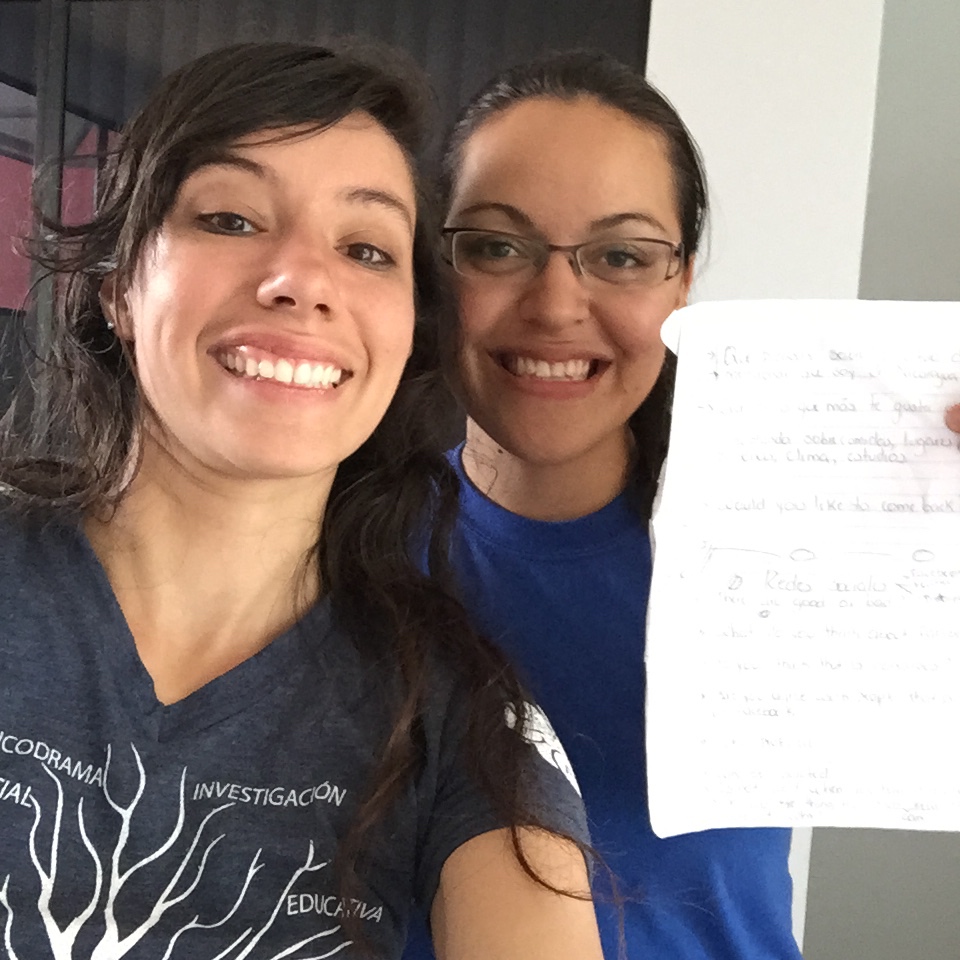
On weekends, I have been able to assist a fellow student, Liz, with English. This past month we worked on a project where she needed opinions from native English speakers about learning a second language. She is as enthusiastic about learning and speaking English as she is helping me out with my Spanish..
Not comparing yourself to your peers means accepting that you’re on your own unique journey and that adjusting to a new culture is different for everyone. The classroom setting where you learn a new language is a culture in and of itself, and this is a time where it’s important to focus on personal growth in the language. For the first time in my life, I am taking a full course load in another language which is something I never anticipated I would be doing in my life. That being said, I have had some intense moments of feeling overwhelmed with information, especially in my advanced Spanish grammar course. Sometimes I would also catch myself comparing my struggle to students who seem to so easily grasp a complicated subject when I’m needing to ask the professor to repeat the same thing several times. I think comparing myself exacerbated my sense of feeling overwhelmed because then I would start second guessing my own knowledge which definitely does not help me learn. If you ever feel yourself making a comparison to others during your time abroad, it helps to take a step back to acknowledge that everyone comes from different walks of life and thus handles situations differently. In my case, there are native speakers in some of my courses, and naturally their transition into our courses may have been different than mine as someone who is acquiring Spanish as a second language—therefore there is absolutely no good reason to make such an unjust comparison!
Being strong and not giving up means finding your strength with a support group and realizing that you can accomplish your goals with a positive outlook. Though my culture shock has bestowed moments of frustrations, and intense moments of homesickness, learning to develop an attitude of gratitude has allowed me to finish my year off strongly. I am really fortunate to have been blessed with a loving support system–my host mom, a really incredible best friend in my program, and my parents in the States whom I can call during times of distress. My host mom has been supportive by checking in on me, and just spending quality time with her has helped me so much. We actually just finished reading Charlotte’s Web together in Spanish. I read it aloud to her each week for the past few months, and I must say, even in Spanish this book makes my eyes water!
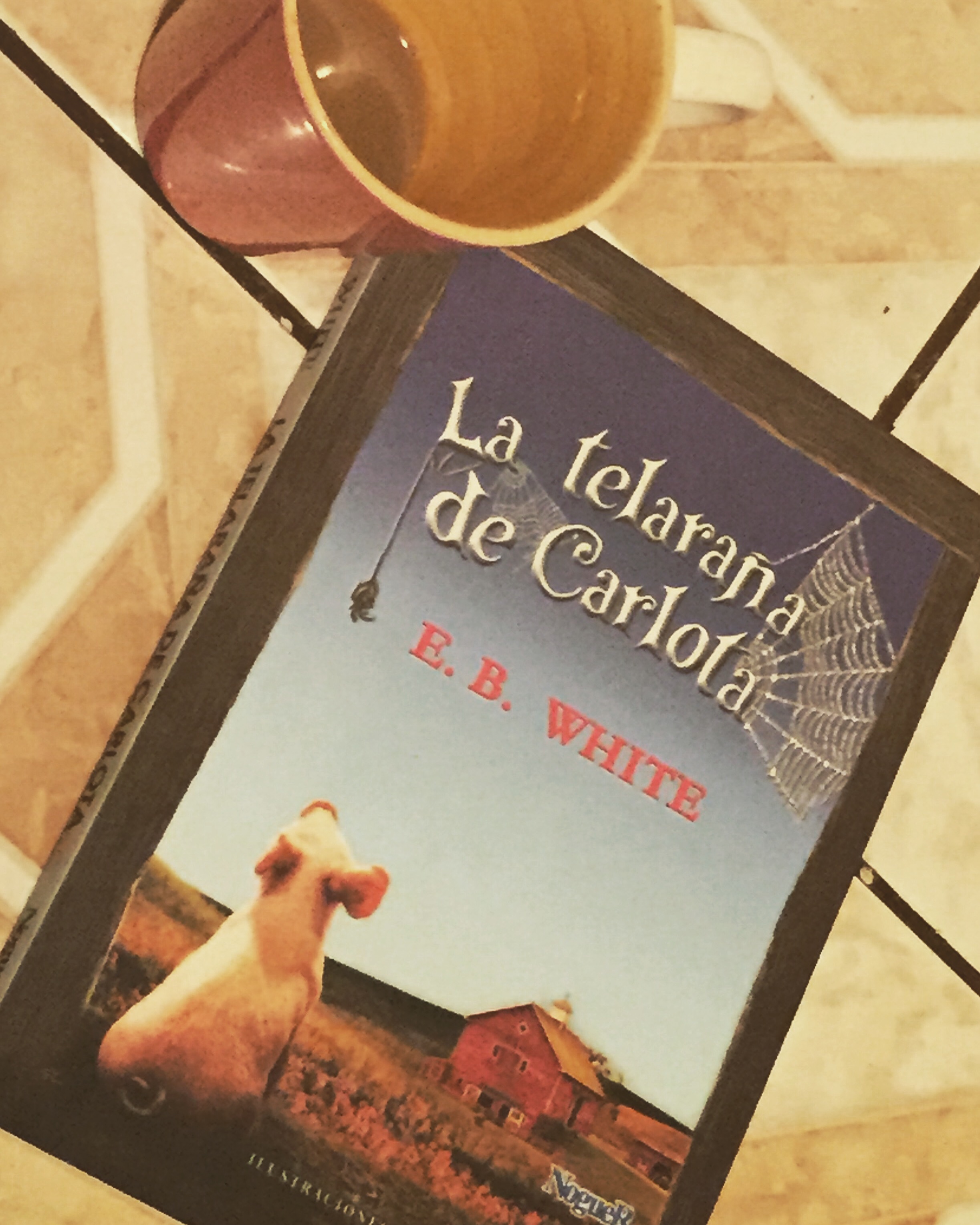
My all time favorite book that my host mom and I read together.
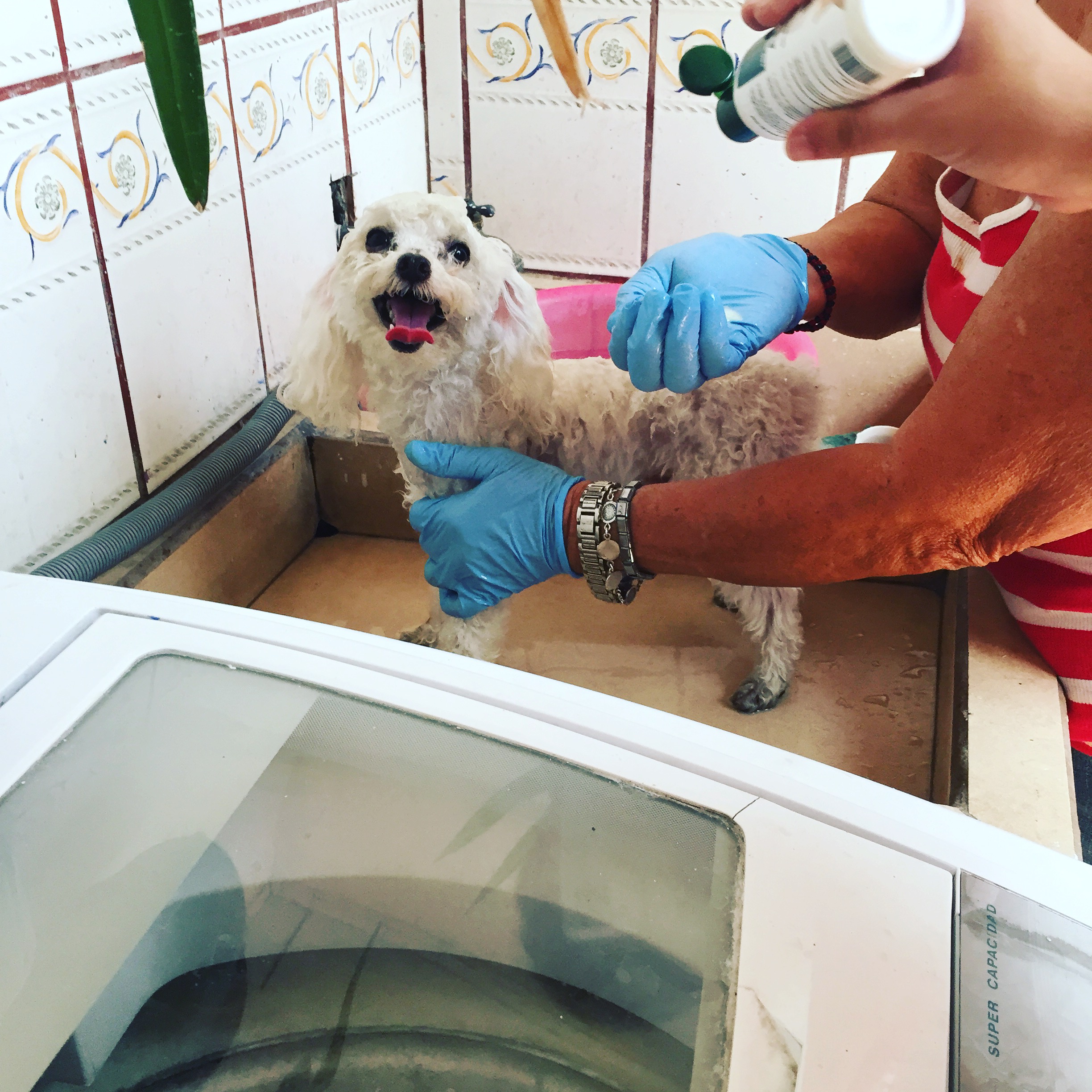
This is Sharky, the family pooch taking his weekly bath with my host mom. She is the only one who can bathe him because he only trusts her. He is so cute! My host mom completely lights up when she gets to groom him.
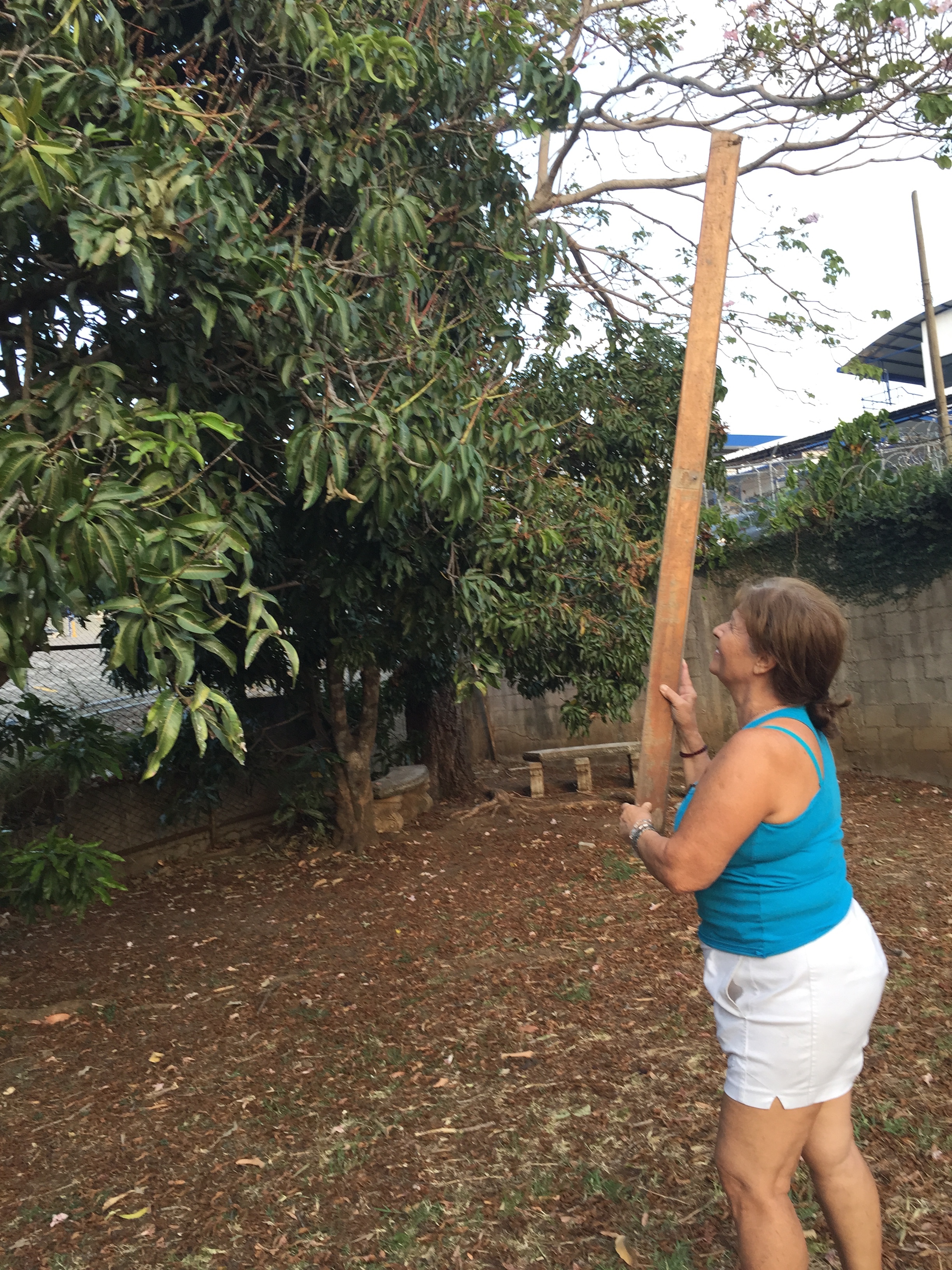
One day I came home from school and my host mom randomly asked if I wanted to go pick mangoes off the neighborhood tree. It was one of the richest moments I got to spend with Maryela. It took us probably a good twenty minutes to come up with a plan to get the mangoes down! She is so crafty because she found a large stick to knock them down with!
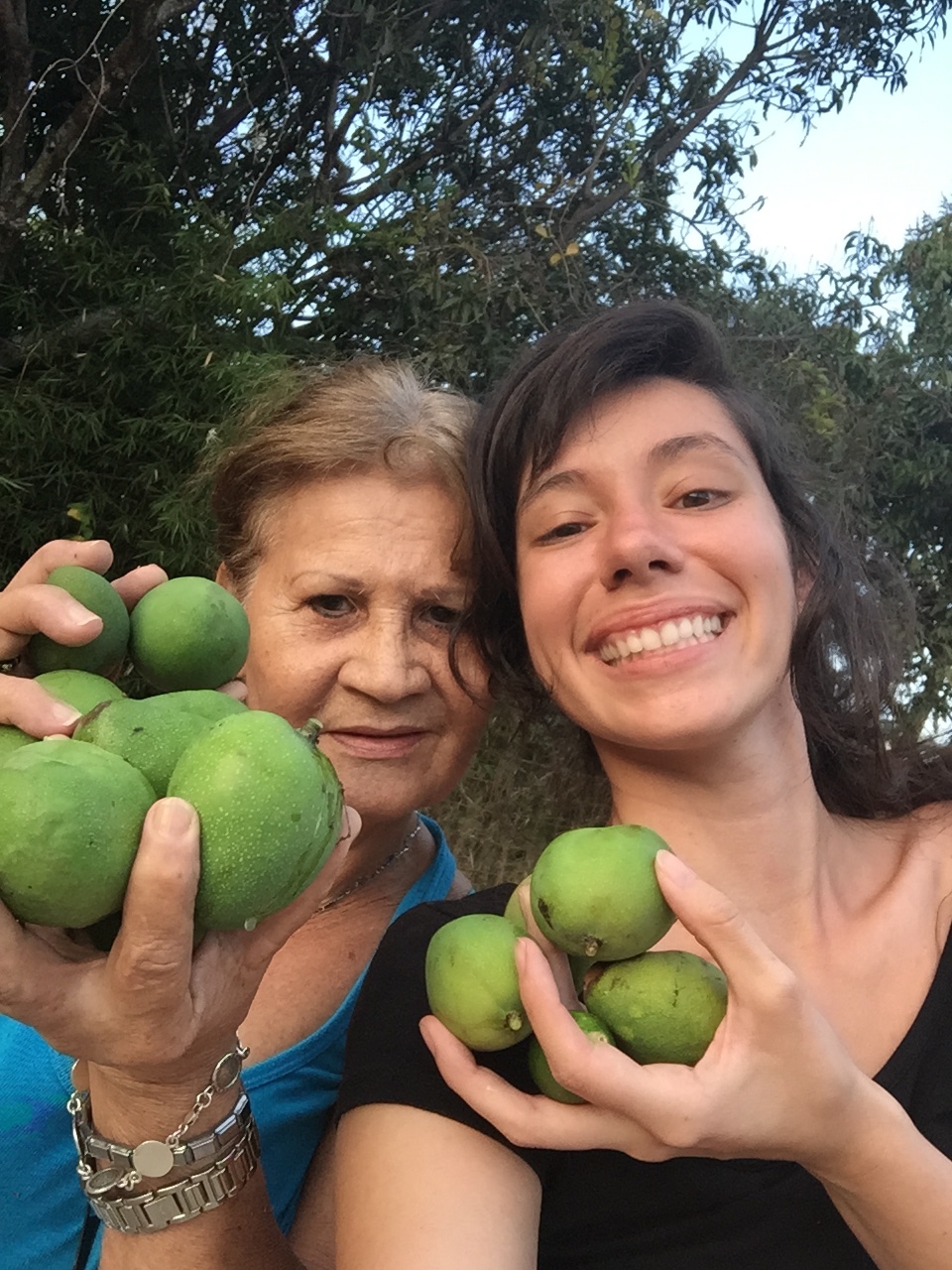
These are the mangoes we collected–we also picked some lemons too! When we came home she chopped the mangoes up and put a spicy sauce on them and we ate them together. They were so good!
One of my best friends in the program has also been really emotionally supportive by volunteering with me at the Reforestation Center at our host university. We’ve been helping bundle trees in small bags with soil so that the university can reforest areas around Costa Rica. The professors and students who work at the center have also been so friendly and kind to us with enthusiasm to teach us about the different species they have in the greenhouse and around UNA (Universidad Nactional de Costa Rica).
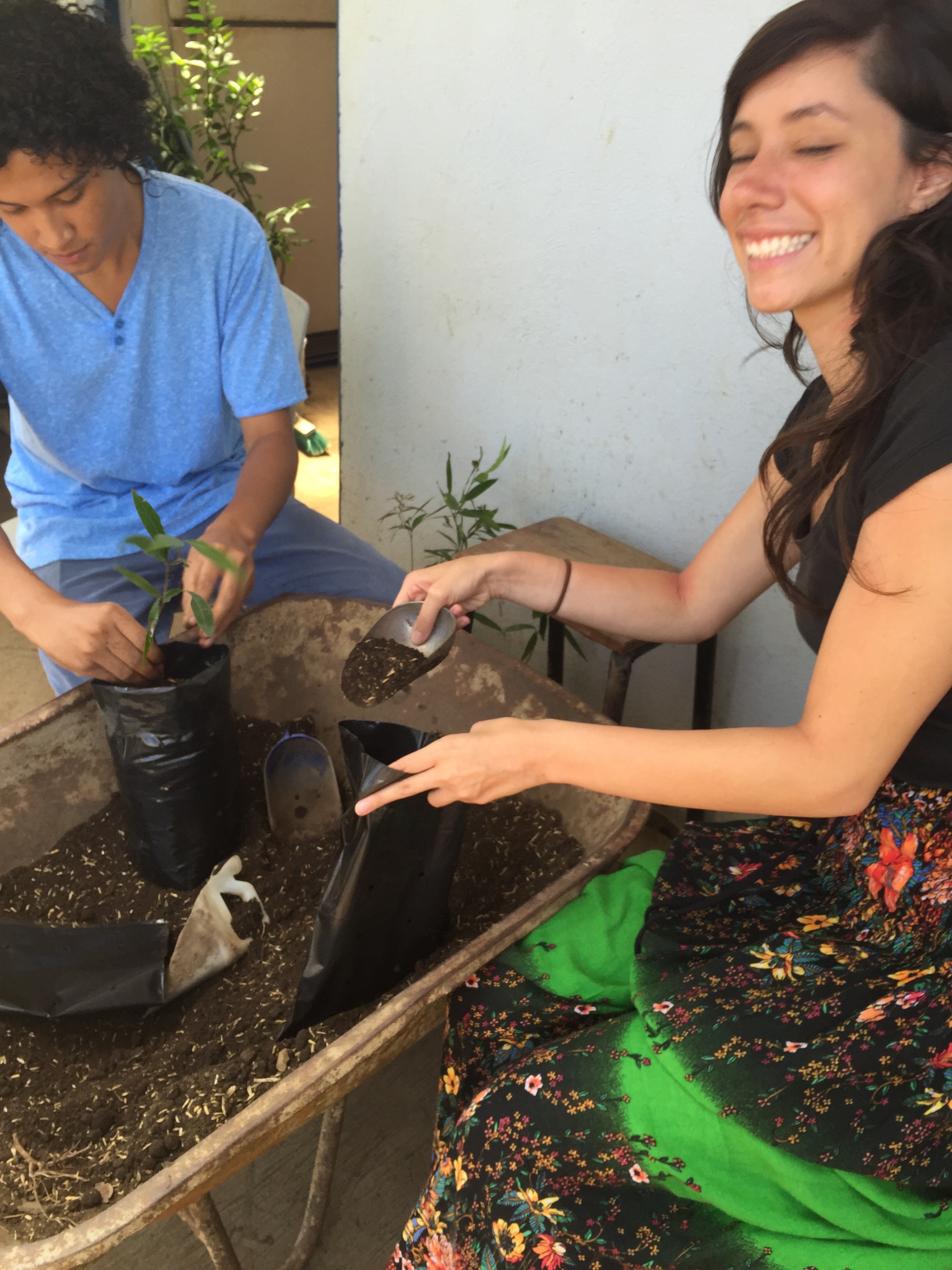
This is me and my really good friend Nikki. After class her and I volunteered together in the campus reforestation center. This was us putting arbolitos in fresh soil for future reforestation.
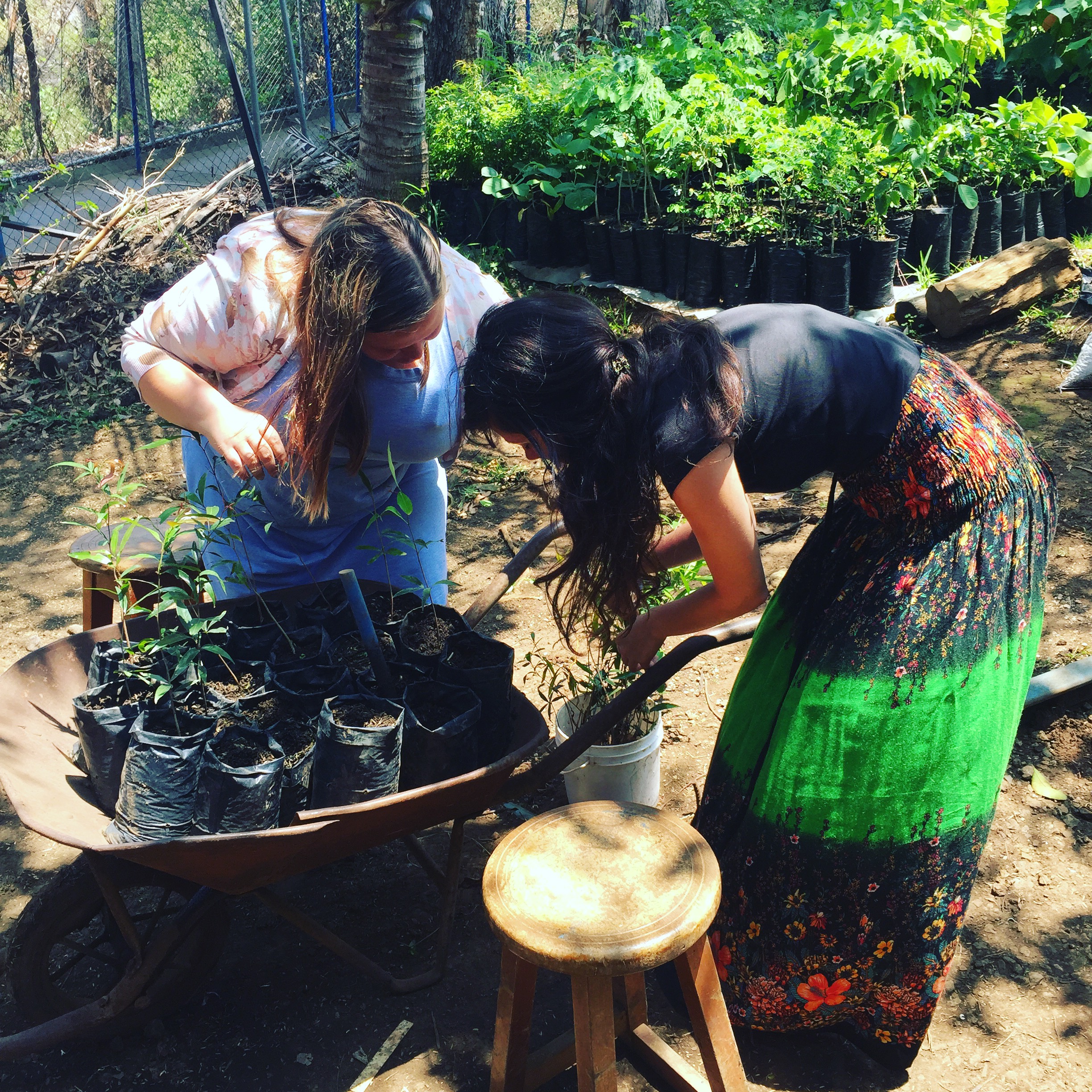
The weather was perfect that morning! I had a great time learning about the different species of trees located around the university!
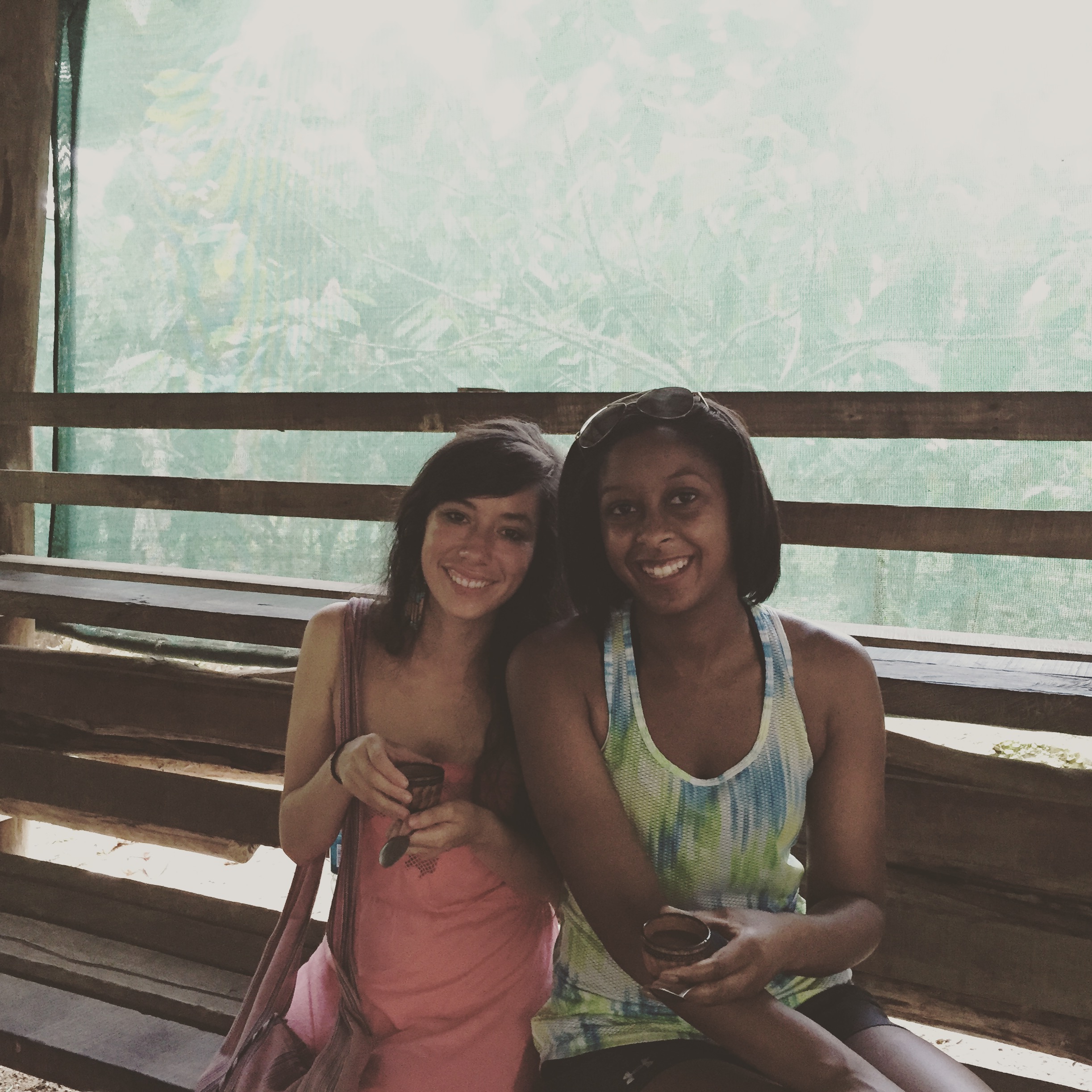
One of my close friends Kristin and I on went on a chocolate tour together! We got to learn so much about how chocolate is processed, made, and distributed for economic growth. Plus we got to drink and eat chocolate!

I took a trip with two of my friends to Arenal and we swam in the caterata which translates as “waterfall.” It was so beautiful, especially when the rain came!
And lastly, my parents at home have also been supportive of me when I’ve felt overwhelmed. While it’s important to be conscious of spending too much time Skyping with family because it may intensify homesickness, I think it’s important to keep in contact with family who can offer insight on your personal strengths, which my parents definitely do. They’ve given me so much encouragement to finish my year abroad strongly—which is exactly what I’m doing!
Also, when facing culture shock another powerful tool is to always take time to acknowledge the little things that are special about the culture you’re living in–like Costa Rican iced coffee!
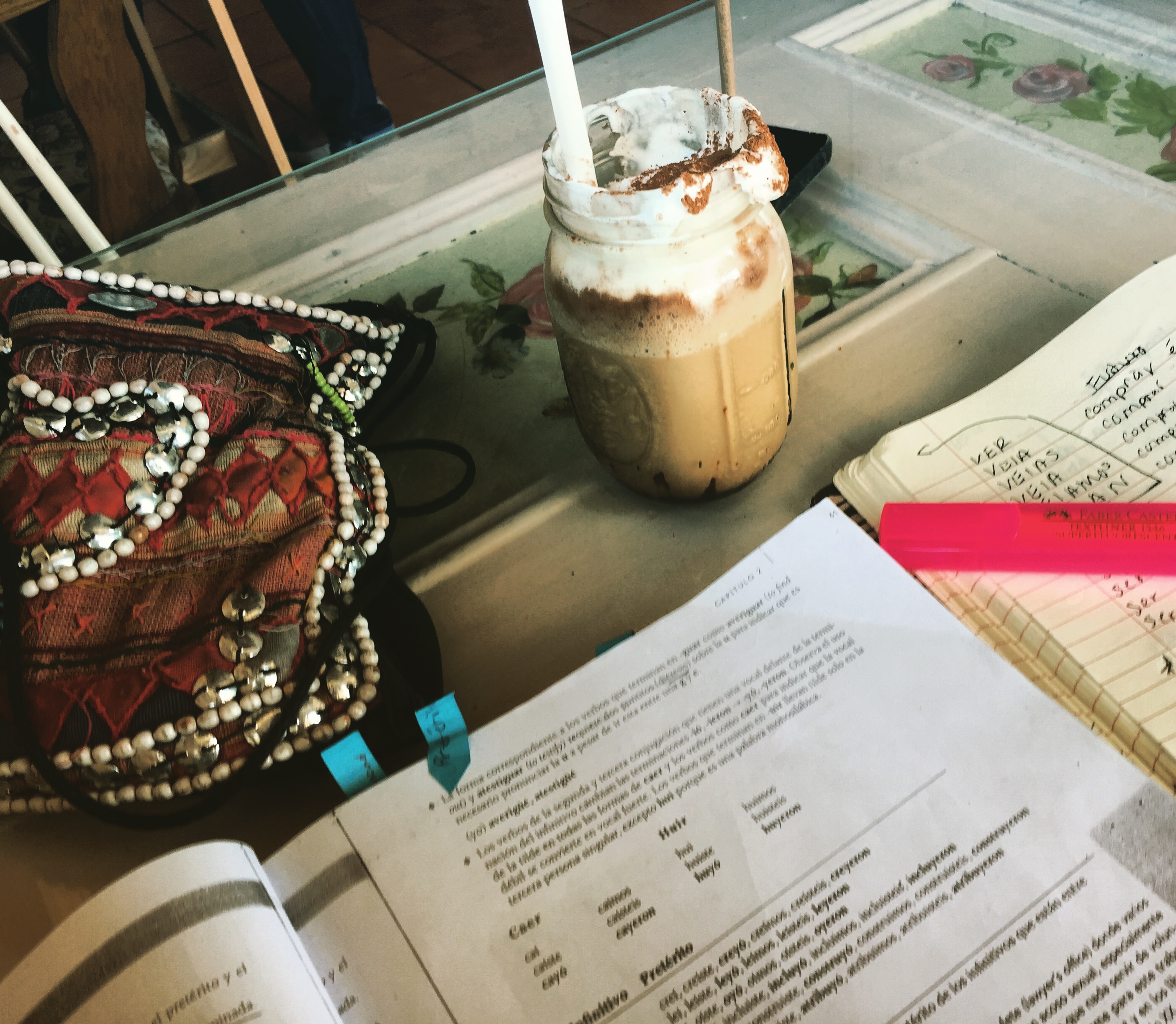
My favorite treat while studying will always be cold coffee in Costa Rica.
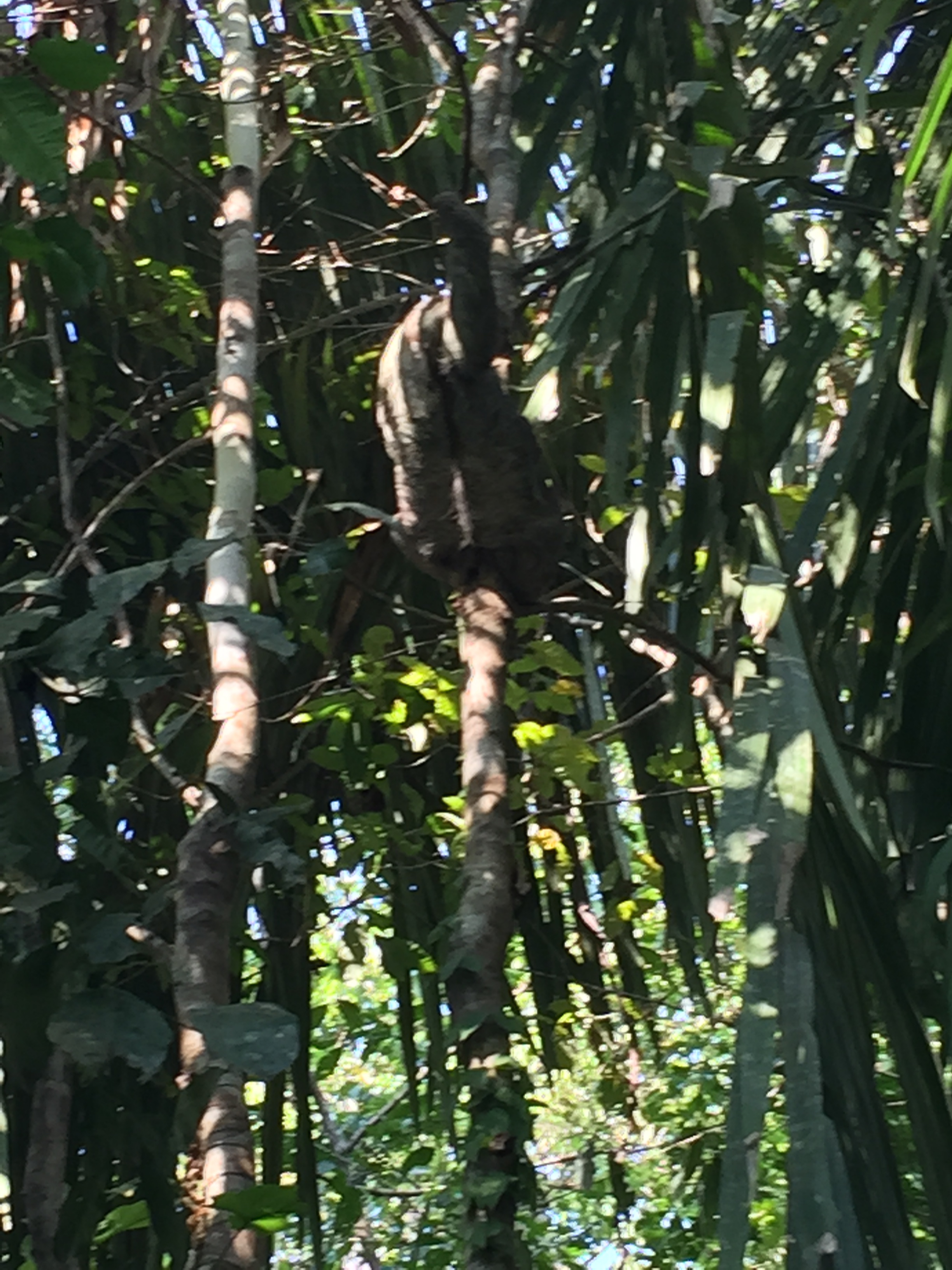
Another “little thing” I love to stop and admire is the sloths that casually hang around in the trees. Apparently they sleep 21 hours a day.
Hasta Mayo,
Alexandria



